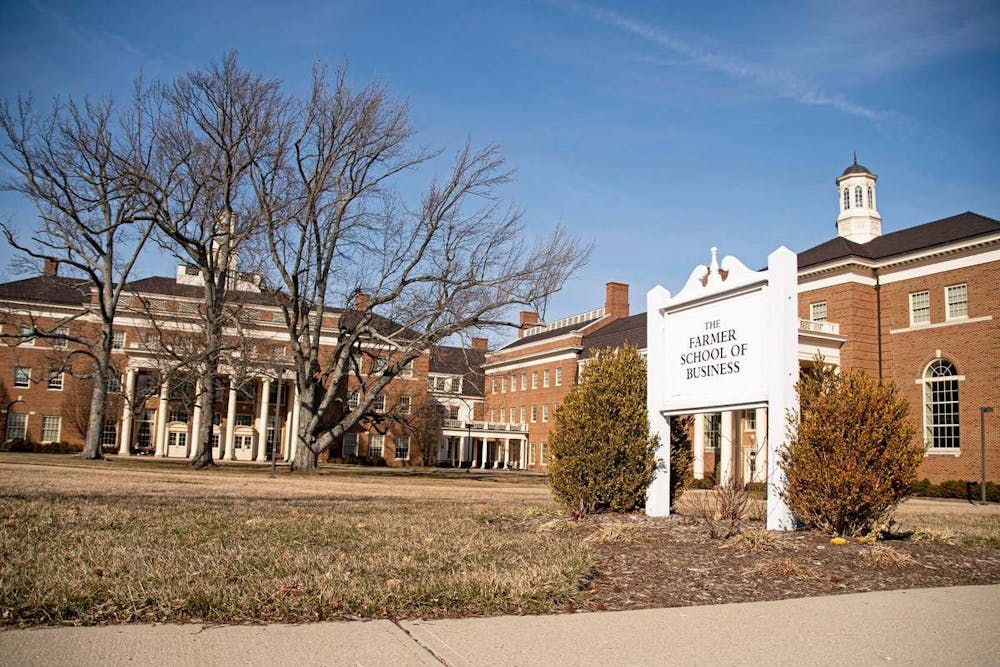Miami University’s Farmer School of Business (FSB) is making strides to include virtual reality (VR) technology in its diversity and inclusion training.
Gillian Oakenfull, director of diversity and inclusion and a professor in FSB, recently received a $50,000 grant to incorporate VR into Beyond Ready CQ, the college’s diversity, equity and inclusion (DEI) program.
Virtual reality training is just one part of FSB’s initiative to revamp its DEI program. Starting this year, FSB began its Beyond Ready CQ program, which aims to improve its students’ “CQ,” or cultural intelligence IQ, through a series of skills credentials.
All first-years are required to take the CQ Pro online assessment of their cultural intelligence through the Cultural Intelligence Center. They are then given a wide variety of opportunities to raise their CQ, including taking courses and thematic sequences, joining student organizations and pursuing minors that include a diverse perspective.
Also, first-years must enroll in BUS 106, a business class aimed at helping students understand the concepts behind CQ and how they can develop their diversity skills.
FSB has worked with the company Equal Reality to develop virtual training simulations that allow participants to virtually experience discrimination and teach them how to identify biases, according to FSB’s website.
The simulations also allow participants to practice having difficult conversations and see how their choices impact others by experiencing the situation from different perspectives.
Oakenfull said VR gives people a safe and private environment to identify their own biases.
“It’s a personal and immersive experience,” Oakenfull said. “All of a sudden, you are now in [another person’s] identity … That’s a very different experience than just talking to somebody.”
Oakenfull also said finding new solutions to address the shortcomings of current diversity training methods was necessary.
“There’s been lots of data about how a lot of DEI workshops just don’t work,” Oakenfull said. “So I'm really trying to look at things that you can measure the impact on, and people are actively wanting to try.”
Oakenfull said this form of technology has benefits over traditional workshops.
Enjoy what you're reading?
Signup for our newsletter
“Bias is all about slowing down your thinking … taking what’s normally unconscious and making it conscious and mitigating it,” Oakenfull said.“That’s what [VR] allows you to do … so you can replicate it outside.”
At the end of their senior year, students will be re-examined using the same assessment to illustrate their CQ development during their time at Miami. While an improved score is not required for graduation, students are still incentivized to work toward raising it since they can include it on their resume after graduation.
Emma Beck, a first-year business major who took the assessment last semester, said she hopes to get a lot out of the school’s DEI program over the next few years.
“The business world is constantly evolving, so it's good to have that cultural awareness and know more about yourself as you're moving into the business world,” Beck said.
FSB students will be able to use their scores to signal their understanding of diversity to future employers.
Oakenfull said the ability to showcase one’s growth in cultural knowledge may be especially important for students coming from FSB and Miami, which both have a reputation of lacking diversity.
“One of the things that we have to recognize is that our students need tangible evidence that they’ve done this work because people are not gonna expect it of Miami University, and they’re not gonna expect it from a student at Farmer,” Oakenfull said.
The official launch of the VR skills credential has been delayed due to COVID-19.
To make the training more accessible, VR companies have adapted their simulation to a 2D format which can be used on a smartphone, but the full version will most likely be available in FSB by the fall. The training will be available to all students and faculty, and anyone may enroll in it through the website.




